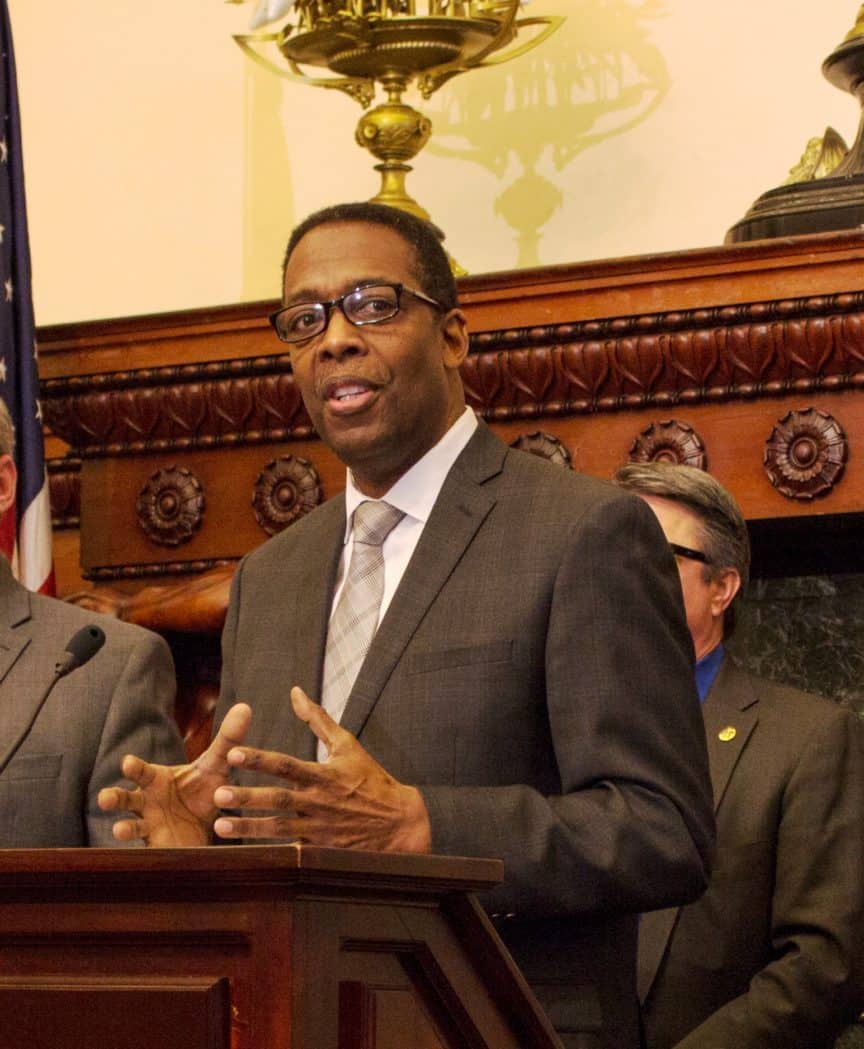Philadelphia, Nov. 17, 2016 – In an effort to increase representation in Philadelphia’s workforce, Council President Darrell L. Clarke (5th District) on Thursday moved to make it harder for entities seeking business with the City to evade equal opportunity requirements.
The ordinance amends Chapter 17-1600 of The Philadelphia Code by adding requirements when exemptions to Economic Opportunity Plans are sought as part of a transaction with the City. Economic Opportunity Plans, or EOPs, are generally required of parties to the City in order to increase work opportunities for underrepresented persons such as non-whites, women, and the disabled. However, data collected by the City’s Office of Economic Opportunity (OEO) show that EOP goals are rarely met, with no consequences for contractors or other parties to the City.
“When developers and contractors claim that they cannot find workers of color or women workers in a city that looks the way Philadelphia does, it defies belief and borders on outrageous,” Council President Clarke said.
“City Hall has little power to influence the private sector, but we absolutely have influence over every taxpayer dollar we spend. If you want to do business with the City and cannot meet the goals of an EOP, you need to give us proof that you made ‘best and good faith efforts’ to hire women, disabled people, and non-white people. The honor system simply is not good enough.”
Clarke’s amendment would require parties seeking partial or full exemption from EOP compliance to develop and implement economically feasible plans to meet inclusion goals with the assistance of the City’s Finance Department. If compliance is deemed not feasible or appropriate and an exemption has been granted, certification from the City will be required and posted on the City’s website.
Council President Clarke also put forth two additional amendments: One that corrects a technical oversight in Land Bank legislation, and one that would make penalties for certain businesses consistent with the City’s overall penalty structure. Currently, businesses such as takeout restaurants located on residential blocks must close by 11:00 p.m. Clarke’s ordinance would reduce fines for businesses in violation from $2,000 to $300, in keeping with similar penalties levied by the City.
The three ordinances are listed below:
Bill No. 160998 – Amending Chapter 17-1600 of The Philadelphia Code,, entitled “Economic Opportunity Plans,” by adding requirements when exemptions to Economic Opportunity Plans are sought and granted; all under certain terms and conditions.
Bill No. 160006 – Amending Chapter 16-700 of The Philadelphia Code, entitled “Philadelphia Land Bank,” to exempt the Land Bank from certain municipal claims and charges; all under certain terms and conditions.
Bill No. 161018 – Amending Section 9-627 of The Philadelphia Code, entitled “Commercial Establishments on Residential Blockfaces,” by lowering the penalty amount; under certain terms and conditions.
# # #
Council President Darrell L. Clarke is serving his second term as the President of Philadelphia City Council. He represents Philadelphia’s 5th Council District. More information at phlcouncil.com/DarrellClarke


